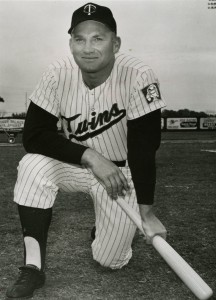 Harmon Killebrew stepped to the plate in the top of the eighth with a runner on second and one out. Milt Pappas was on the mound. It was the second game of a doubleheader between the Minnesota Twins and Baltimore Orioles at Memorial Stadium in Baltimore.
Harmon Killebrew stepped to the plate in the top of the eighth with a runner on second and one out. Milt Pappas was on the mound. It was the second game of a doubleheader between the Minnesota Twins and Baltimore Orioles at Memorial Stadium in Baltimore.
The date was May 24, 1964.
The Orioles were leading 4-2.
Pappas threw a fastball and Killebrew got all of it. The ball flew over the fence in left-center and landed 471 feet away – making it the longest home run in the history of Memorial Stadium.
Killebrew was one of the most-feared power hitters in the American League during the 1960s. Eight times between 1959 and 1970, he hit more than 40 home runs. He totaled 573 home runs throughout his 22 years in the AL – which places him eleventh on the list of career leaders in that department.
Killebrew also hit the longest home run in the history of Minnesota’s Metropolitan Stadium – 522 feet. He was an 11-time All-Star, Hall of Famer, and one of the most popular Twins of all time.
Later that day, some 3,000 miles to the west, Jim Bunning (5-1) took the mound as the Phillies were going for the sweep against the Dodgers in front of 36,900 fans ─ which upped the total attendance for the three-games to 118,169. The Dodgers were going with Joe Moeller (1-3).
Moeller went 6-5 with the Dodgers in 1962, but was out of baseball in ’63. This was his sixth start of the season. His lone win was a 3-1 victory over the Colts 45s.
Bunning won his last two starts, the most recent a one-hit shutout over the Colts 45s.
The game was scoreless going into the bottom of the second.
Frank Howard led off with a single to center. One out later, Wes Parker doubled, but Howard stopped at third to put runners on second and third with one out. Dick Tracewski singled Howard across the plate to make it 1-0 Dodgers.
Moeller shut the Phillies out in the top of the third.
In the bottom of the third, with one out, Tommy Davis hit his third home run of the season to make it 2-0 Dodgers.
The score remained 2-0 after six innings.
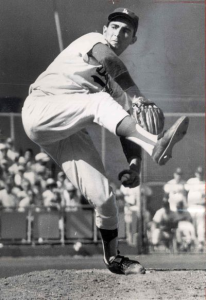 Johnny Callison doubled to start the Phillies seventh. Wes Covington doubled, but Callison had to hold third – putting runners on second and third with nobody out.
Johnny Callison doubled to start the Phillies seventh. Wes Covington doubled, but Callison had to hold third – putting runners on second and third with nobody out.
Walter Alston thought outside the box and called on his ace starter Sandy Koufax (4-3) to the rescue. Koufax had beaten the Mets in his last regular start three days earlier.
Koufax retired the first three batters he faced to hold the Phillies scoreless in the seventh, and then he got the Phillies in order in the eighth.
During that top of the eighth, Gene Mauch pinch-hit for Bunning.
Jack Baldschun (2-0) replaced Bunning to start the bottom of the eighth.
Baldschun struck out the first two batters in the bottom of the eighth, but then he gave up a single to Ron Fairly. When Wes Parker followed with a triple, it was 3-0 Dodgers.
Koufax stayed on to pitch the ninth. He gave up a single to Wes Covington, but kept the Phillies off the scoreboard to pick up his first save.
Joe Moeller (2-3) gave up only three hits in posting the win and Jim Bunning (5-2) took the loss.
In San Francisco, the Pirates swept a doubleheader from the Giants.
Bob Veale (4-3) threw a two-hitter to beat Jack Sanford 2-0 in the first game. Rookie right-hander Tom Butters gave up six hits and two runs over five innings in picking up his first big-league win – a 5-3 win over Bob Shaw.
So even though the Phillies lost to Dodgers, the two losses by the Giants pushed the Phillies into first place by one-half game over the Giants.
The Braves and Cardinals were tied for third place a game-and-a-half behind the Phillies.
(Excerpted from 1964 – The Year the Phillies Blew the Pennant by Barry Bowe.)
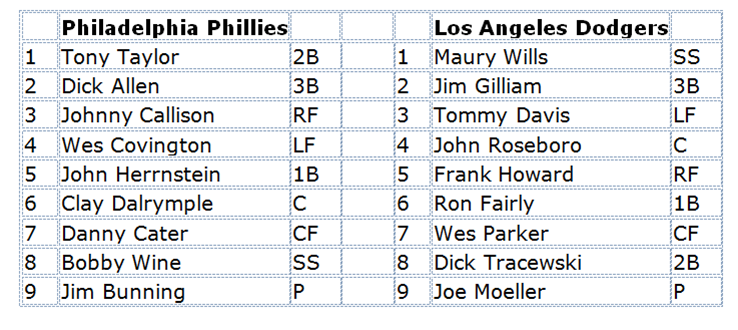
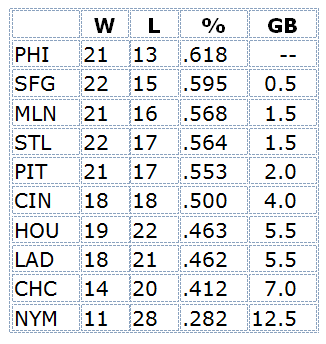
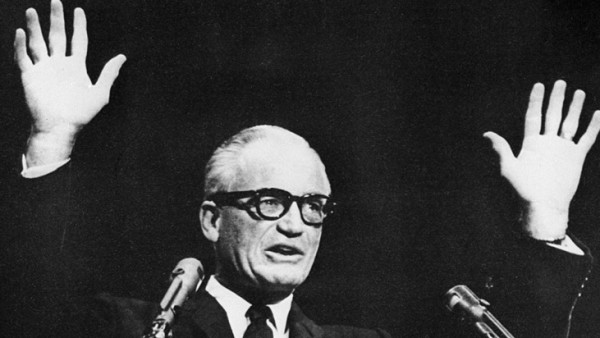

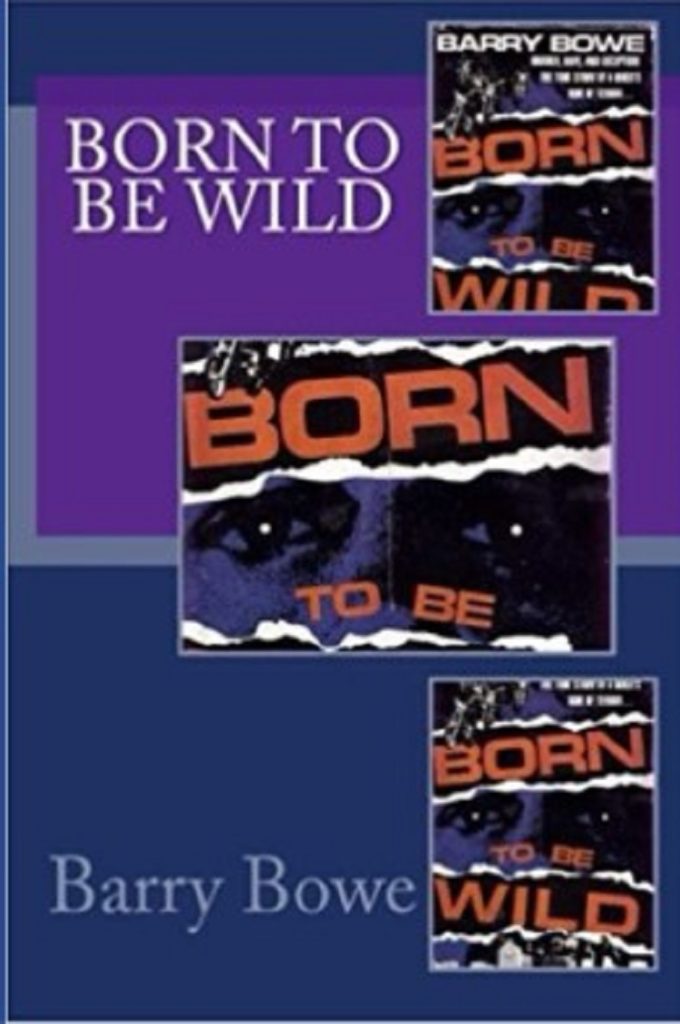


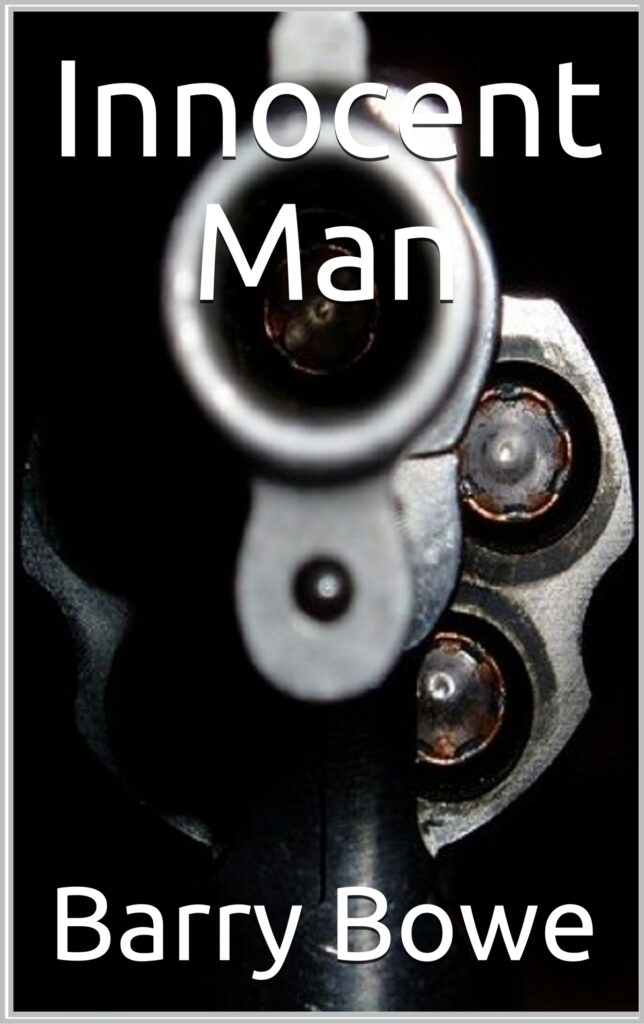
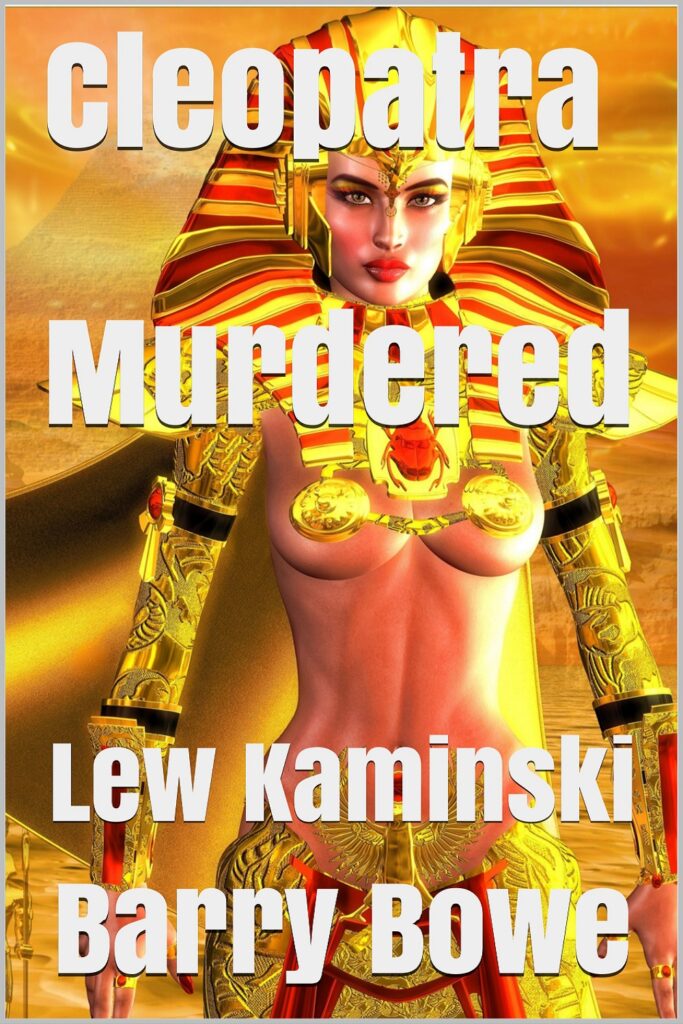
Comments
No Comments